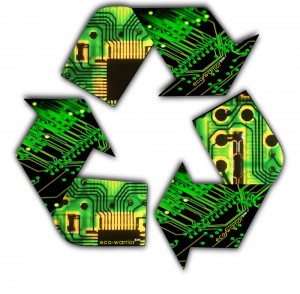Globally, 500,000 PCs are disposed of every single day, while nearly 500,000,000 cell phones get dumped annually, according to Forum for the Future. This staggering figure does not even consider the number of old machines collecting dust in crawl spaces all across the country. Even worse, the National Safety Council estimates that the number of PCs considered obsolete in any given year will far surpass the number of new devices made available to consumers. Lenovo has information about selling and buying used laptops; if you don’t want to sell your old kit, rather than tossing those used laptops and desktop computers into the garbage, you may want to consider some of the risks associated with e-waste and think about some of the other options available today.
In 2009, 90 percent of electronic waste generated in the US was exported to China and Nigeria, according to the Financial Post. Let’s put that into perspective. If Americans toss away 30,000,000 computers this year, that means that 27,000,000 individual machines will make their way to these two countries (whether we are aware of it or not). The implications of these numbers are equally staggering. In the small town of Guiyu, situated on the coast of the South China Sea, there are 5,500 businesses that use human labor to take apart these old computers in order to extract lead, copper, and even gold. According to an article in the Guardian, the burning off of plastics from old electronics has lead to approximately 80 percent of the area’s children having dangerous amounts of lead in their blood. Well, burning plastic is surely not the solution, and finding different methods to recycle and reuse plastic can help the planet suffer less. For instance, recycling waste plastic bottles into fibers which can then be turned into sustainable socks or other apparel, can be a start. People should come up with similar initiatives wherein e-waste can be recycled and reused rather than burned, which can lead to mass health problems. One of the best ways to prevent atrocities like this from happening is to consider having that old device recycled in a humane and sustainable way. Indeed, many will ensure that these are thrown away by looking for skip bins for hire sydney and other areas have available. But what happens once those parts are taken away?
Welcome to the ever-expanding world of computer recycling. Today, computer recycling is a rapidly growing business that functions to prevent situations like the tragic case of Guiyu from happening. Dozens of consumer awareness efforts in the form of not-for-profits exist in both North America and Europe. For example, the Consumer Electronics Association urges consumers to use recycling centers with extremely high standards for the disposal of end-of-life electronics. The easiest components to recycle are made of large pieces of metal, with many places now offering waste metal recycling. This waste metal recycling Bishop Auckland service, for example, recycles larger pieces of scrap metal, significantly reducing electronic waste. In Texas, Campaign for the Environment is building tremendous grassroots support for e-waste recycling at the community level. The group is lobbying some of the biggest electronic manufactures for improved producer take-back recycling policies and to seriously commit to sustainable recycling projects. Also, there are companies and businesses that produce bulk electronic wastes that pose a risk to the environment as well as to people. It might be useful to take the help of professionals in order to dispose of e-waste, and it might also be prudent to recycle junk rather than dumping it in landfills. It might be safer to hire e waste recycling bin from trusted electronic waste companies that have professionals trained in how to dispose of the waste to stip down wires and circuit boards, keeping smaller pieces of metal out of landfill.
Amongst the many charities involved in responsible electronics recycling, there are some major manufacturers leading the way in socially responsible electronics recycling. Lenovo’s global line of electronic products come labeled with a Waste Electrical and Electronic Equipment (WEEE) marking indicating that the product is not to be thrown away, but rather to be included in the established system for the reclamation of used products. As a customer incentive to recycle, Lenovo India and USA offer individuals and businesses voluntary collection and recycling of all Lenovo products. In 2011 Lenovo’s E-waste collection program collected 2.12 metric tons of such equipment, recycling it rather than merely throwing it away.
Another tech giant, Dell, was the first global producer to successfully ban the export of non-working electrical goods to developing countries. In a world of corporate greed and socially irresponsible business practices, it is refreshing to see some positive steps towards sustainability from some major household names.
The recycling of raw materials generated from end-of-life electronics is one of the most effective steps towards mitigating this global issue. Simply tossing out old electronics poses a potential threat to human health and to the planet. When it comes time to replace old PCs and other devices, think twice before sending them to the landfill.

